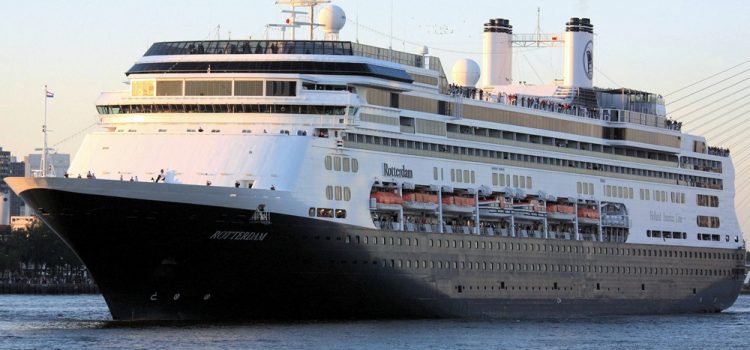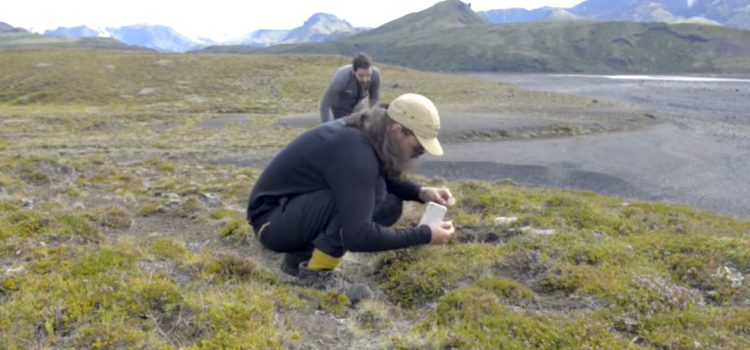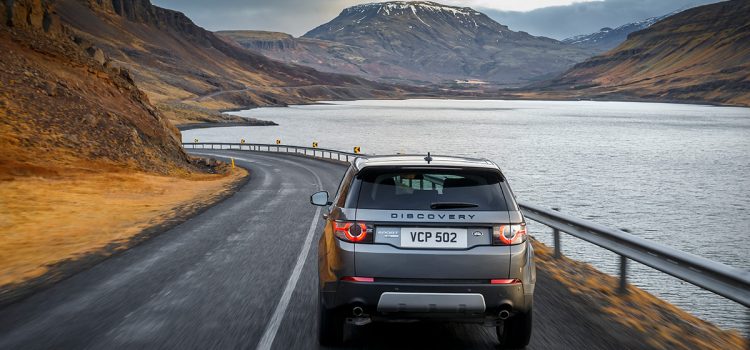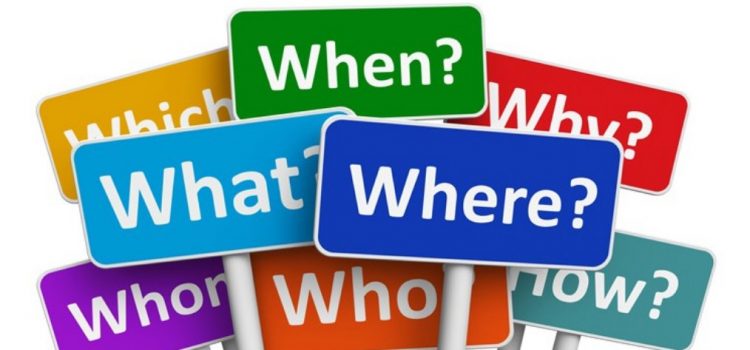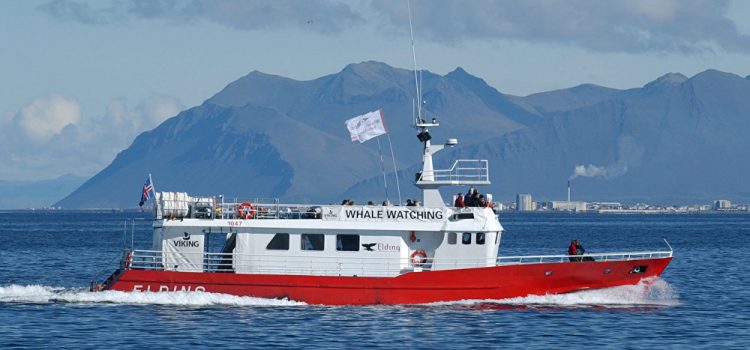Travel to Iceland by sea
SMYRIL LINE: The Faroe Islands’ Smyril Line operates a weekly passenger- and car-ferry service from Bergen in Norway and Hanstholm in Denmark to Lerwick in the Shetland Islands, the Faroe Islands and Seyðisfjörður in Iceland. Check out all Iceland travel tours.
For further information contact any of the following offices:
Faroe Islands • SMYRIL LINE
J. Broncksgøta 37
P.O. Box 370 • FO 110 Tórshavn
Faroe Islands • Tel.: +298-345900
Fax: +298-345950 / +298-345951
E-mail: [email protected]
www.smyril-line.fo
Denmark • Smyril Line
Trafikhavnsgade 7
DK-7730 Hanstholm • Denmark
Tel.: 45-96550360 • Fax: 45-96550361
E-mail: [email protected]
www.smyril-line.dk
Iceland • Austfar
Fjarðargata 8
IS-710 Seyðisfjörður • Iceland
Tel.: +354-472-1111 • Fax: +354-472-1105
E-mail: [email protected]
www.smyril-line.is
Iceland • Norræna Terra Nova
Smyril Line Ísland
Stangarhylur 3 • IS-110 Reykjavík • Iceland
Tel.: +354-591-9000
Fax: +354-591-9001
E-mail: [email protected]
www.terranova.is
Norway • Smyril Line Norway
Slottsg. 1 • P.O. Box 4135 Dreggen
N-5835 Bergen • Norway
Tel.: +47 55 596520
Fax: +47 55 596530
E-mail: [email protected]
www.smyril-line.no
Scotland • Smyril Line Shetland
Holmsgarth Terminal
Lerwick ZE1 OPR • Shetland
Tel.: +44 1595 690845
Fax: +44 1595 692287
E-mail: [email protected]
www.smyril-line.com
Germany • Smyril Line Deutschland
J.A. Reinecke Agentur
Jersbeker Strasse 12 • D-22941
Bargteheide, Germany
Tel.: +49 45 326519
Fax: +49 45 3224143
E-mail: [email protected]
www.smyril-line.de
Travellers in Iceland are safe and sound
The Iceland Tourism Office held a meeting at noon today, 16 April 2010, whereupon it was decided to issue a press release stressing that day-to-day life in Iceland is just as usual, even though the volcanic eruption in Eyjafjallajökull glacier on the south coast of Iceland has made a profound impact and generated dangers in a specified area. In other parts of the country, Icelanders’ daily life is proceeding quite normally.
Even though the eruption in Eyjafjallajökull is relatively small, airborne volcanic ash has dispersed over a wide area and disrupted air travel in Europe. It is the joint task of the aviation and tourism authorities in Europe to find ways to transport travellers to their destinations with absolute safety.
It is the task of Iceland’s Civil Protection Department to ensure that the utmost safety measures are followed in Iceland, and to provide a constant flow of information to all parties that need it. Euro Control and the Volcanic Ash Center take decisions on air travel authorisations in Europe.
Even if the eruption is prolonged – and its duration is impossible to predict – it is considered likely that volcanic ash formation will taper off once the preconditions for the mixture of water and embers no longer exist.
The Icelandic Tourist Council wishes to forewarn the public of exaggerated news reports on the eruption but encourages travelers to keep abreast of developments.
Travellers currently in Iceland are safe and well-treated, and the appropriate parties are making every effort to make their stay as pleasant and comfortable as possible.
Driving in Iceland
Most mountain roads and roads in the interior of Iceland have a gravel surface. The surface on the gravel roads is often loose, especially along the sides of the roads, so one should drive carefully and slow down whenever approaching an oncoming car. The mountain roads are also often very narrow, and are not made for speeding. The same goes for many bridges, which are only wide enough for one car at a time. In addition to not having an asphalt surface, the mountain roads are often very windy. Journeys may therefore take longer than expected. For information on road conditions, Tel.: +354-1777, daily 8:00-16:00. www.road.is The total length of the Ring Road around Iceland (national highway) is 1.339 km. The general speed limit is 50 km/h in urban areas, 80 km/h on gravel roads in rural areas, and 90 km/h on asphalt roads.
Please note
Special warning signs indicate danger ahead, such as sharp bends, but there is generally no separate sign to reduce speed. Please choose a safe speed according to conditions. Motorists are obliged by law to use headlights at all times, day and night. In Iceland all driving off roads or marked tracks is prohibited by law. Passengers in the front and backseats of an automobile are required by law to use safety-belts. Icelandic law forbids any driving under the influence of alcohol.
Motor vehicle insurance
A “Green Card” or other proof of third-party insurance is mandatory for motorists driving their own cars in Iceland, except from the following countries: Austria, Belgium, Croatia, Channel Islands, Czech Republic, Cyprus, Denmark, Faroe Islands, Finland, France, Germany, Gibraltar, Great Britain, Greece, Hungary, Ireland, Isle of Man, Italy, Liechtenstein, Luxembourg, Monaco, Netherlands, Northern Ireland, Norway, Portugal, San Marino, Slovakia, Slovenia, Spain, Sweden, Switzerland and the Vatican.
Filling stations
In the greater Reykjavík area most filling stations are open every day to 23:30. Opening hours around the country, where the pumps are privately operated, can vary from place to place. Many stations in the Reykjavík area and larger towns of Iceland have automats in operation after closing, which accept VISA and EURO credits cards as well as notes.
Distances in Kilometers
In the following PDF-document you find distances in kilometers between many places of interest in Iceland. The distances refer to the Ring Road (Highway no 1. except north of Lake Mývatn) and the shortest routes out from it unless otherwise mentioned. The main ring road no. 1 is 1.360 km. Distances in Kilometers (PDF)
Opening of mountain tracks
Most mountain roads are closed until the end of June, or even longer because of wet and muddy conditions which make them totally impassable. When these roads are opened for traffic many of them can only be negotiated by four-wheel-drive vehicles. For some mountain tracks it is strongly advised that two or more cars travel together. Also, before embarking on any journey into the interior collect as much information as possible regarding road conditions from a travel bureau, tourist information office or the Public Roads Administration Tel.: +354-1777 · daily 8:00-16:00, www.road.is
Maps
Maps are necessary to ensure visitors to Iceland an enjoyable and safe journey. Ask for road maps and maps of Iceland at local tourist offices, bookstores or filling stations. Always take along a detailed map.
Have a safe journey
Have a safe journey (PDF-document).
Video-How to drive in Iceland
Travelling in Iceland can be one of the greatest experiences you can have. But this beautiful and rugged landscape also contains some difficulties and dangers for the driver, difficulties and dangers that you may not have come across in other countries. In this video from The Road Traffic Directorate you can see a few examples of what to bear in mind when driving in Iceland so as to avoid these hazards and have an accident-free holiday.
Practical Information
Before you go on a trip there are list of checkups that you need to take. Here is the list of practical information:
BEFORE YOU GO
For information on passport and visa requirements as well as the Schengen area regulations, please view the website of the Icelandic Directorate of Immigration.
BUSINESS/SHOPPING/BANKING HOURS
Office hours are generally 09:00-17:00 and 08:00-16:00 during June, July and August. Shopping hours are Mon-Fri 09:00-18:00, Sat from 10:00 to 13:00/14:00/15:00 or 16:00. Some supermarkets are open to 23:00 seven days a week. Banking hours are Mon-Fri 09:15-16:00.
CURRENCY EXCHANGE
The Icelandic monetary unitis the “króna.” Coins are in denominations of 100 kr., 50 kr., 10kr., 5 kr. and 1 kr. Bank notes are in denominations of 5000 kr., 2000 kr.,1000 kr., and 500 kr. All Icelandic banks provide foreign exchange and are generally open on weekdays from 09:15 to 16:00. Central Bank of Iceland – Exchange rate
TRAVELLERS’ CHEQUES, DEBIT and CREDIT CARDS
Are widely accepted in Iceland. The major cards in Iceland are EUROPAY/MASTERCARD and VISA. Cash can be obtained at every bank branch (over 170) as well as in all ATMs throughout the country. Please note that there might be a difference between the official currency exchange rate in Iceland and the exchange rate that the credit card companies do charge.
SHOPPING
The shops inIceland are of international standard, and carry a wide variety ofmerchandise. Local specialities are woollen knitwear (for example sweaters, cardigans, hats and mittens), handmade ceramics, glassware and silver jewellery. Also available is a great variety of high-quality seafood.
TAX-FREE SHOPPING
A refund of local Value-Added Tax (VAT) is available to all visitors in Iceland.The refund will result in a reduction of up to 15% of the retail price, provided departure from Iceland is within 3 months after the date of purchase. The purchase amount must be no less than ISK 4,000 (VAT included) per store.All goods (except woollens) need to be shown at customs before check-in.At Keflavík airport this applies only to tax-free forms whose refund value exceeds ISK 5,000.All other forms can be refunded directly in cash at Landsbanki Íslands in the departure hall.
POST OFFICES
There are post offices located in all major communities in Iceland. General hours are: Mon-Fri 09:00-16:30. Many post offices in Reykjavik are alos open during the weekends. Information on opening hours can bee found through http://www.postur.is/english/index.html
TELEPHONES
Direct calls can be made to all parts of Iceland.The code into Iceland from overseas is +354 + seven-digit number. Direct long-distance calls can be made to Europe and the USA by dialling 00 plus the country code, and the telephone number you wish to reach.
MOBILE PHONES
GSM: There are fourGSM operators in Iceland: Siminn, Nova, Tal and Vodafone. Together they cover most of Iceland including all towns and villages with over 200 inhabitants. These telephone companies both sell pre-paid GSM phone cards and offer GSM/GPRS services. Pre-paid cards are available at petrol stations around the country. GSM phones may be rented from Iceland Telecom, Ármúli 27, Reykjavík.
CLIMATE
Thanks to the Gulf Stream, Iceland enjoys a cool temperate ocean climate: cool in summer and fairly mild in winter. However, the weather is very changeable and tourists should be prepared for the unexpected. 2008 Temperature Averages in Celsius (Centigrade).
Reykjavík Akureyri
Jan. -0,2 -1,5
Feb. -0,2 -0,4
Mar. 0,8 -1,4
April 3,9 1,4
May 8,6 8,0
June 10,6 9,1
July 12,5 12,4
Aug. 11,5 11,5
Sep. 9,4 9,8
Oct. 2,8 1,2
Nov. 2,8 1,1
Dec. 1,1 -0,3
WEATHER/CLOTHING
For weather information in English, Tel.: 902-0600, extension 44, E-mail: [email protected], www.vedur.is/english. When travelling in Iceland you should bring along lightweight woollens, a sweater or cardigan, a rainproof (weatherproof) coat and sturdy walking shoes. Travellers who are camping or heading into the interior will need warm underwear and socks, rubber boots and a warm sleeping bag.
MIDNIGHT SUN
During summer the nights are bright in all of Iceland. In the month of June the sun never fully sets in the north. There are even special excursions to the island of Grímsey on the Arctic Circle where you can experience the midnight sun. Keep in mind, however, that the sun at midnight is not as warm as at midday, so bring along a sweater.
Daylight (sunrise/sunset )
| Reykjavík | Ísafjörður | Akureyri | |
| Jan. 1st | 11:19 | 12:02 | 11:33 |
| 15:43 | 15:10 | 14:59 | |
| Feb. 1st | 10:10 | 10:31 | 10:07 |
| 17:14 | 17:02 | 16:46 | |
| Mar. 1st | 08:34 | 08:44 | 08:23 |
| 18:48 | 18:47 | 18:28 | |
| Apr. 1st | 06:44 | 06:45 | 06:26 |
| 20:20 | 20:30 | 20:09 | |
| May 1st | 04:58 | 04:47 | 04:31 |
| 21:53 | 22:15 | 21:51 | |
| Jun. 1st | 03:21 | 02.39 | 02:32 |
| 23:32 | 00:26* | 23:52 | |
| Jul. 1st | 03:06 | ——- | 01:59 |
| 23:56 | 01:21* | 00:30* | |
| Aug. 1st | 04:35 | 04:18 | 04:03 |
| 22:30 | 22:56 | 22:32 | |
| Sep. 1st | 06:11 | 06:08 | 05:50 |
| 20:42 | 20:54 | 20:33 | |
| Oct. 1st | 07:37 | 07:44 | 07:23 |
| 18:56 | 18:58 | 18:39 | |
| Nov. 1st | 09:12 | 09:29 | 09:06 |
| 17:10 | 17:02 | 16:45 | |
| Dec. 1st | 10:46 | 11:21 | 10:54 |
| 15:47 | 15:21 | 15:08 |
Times marked with an asterisk (*) refer to the following date.
Used with the kind permission of the Science Institute of the University of Iceland.
TIME
Iceland is on Greenwich Mean Time (GMT) throughout the year, and does not go on daylight saving time.
HEALTH / PHARMACIES / EMERGENCY / MEDICALHELP
Icelanders enjoy a healthy life, thanks to clean air and water and quality fish. Water is safe to drink throughout Iceland. Pharmacies are called “Apótek” and are open during normal business hours. Many are open at night. Reykjavík has a great many general practitioners, as well as specialists, many of whom will receive patients at short notice. There are also many Health Centres in Reykjavík, with officially appointed family doctors who receive patients at short notice during the day. For information tel.: +354-585-1300 or go to www.heilsugaeslan.is
MEDICAL HELP:
There is a medical centre or a hospital in all major cities and towns in Iceland. The emergency phone number (24 hours) in Iceland is 112.
HEALTH INSURANCE
Citizens of Scandinavia have to show passport in case of medical emergency. Citizens of EEA countries must have the E-111 form, otherwise the patient will be charged in full. Citizens of other countries must be charged in full. For further information contact:
State Social Security Institute
Laugavegur114 · IS-105 Reykjavík
Tel.: +354-560-4400 · +354-560-4520
Fax: +354-562-5053
Office hours 08:05-15:30
VACCINATIONS
Vaccinations are not required.
VISITORS WITH DISABILITIES
Visitors with disabilities can make travelling in Iceland fairly easy by planning their vacation in advance. They may also find it necessary to travel with a companion, for although there are many hotels and restaurants accessible to people with disabilities, they do not always provide full assistance. A number of hotels in Reykjavík and Akureyri have rooms specially designed for guests with disabilities. Larger department stores are generally accessible to wheelchair users. The coastal ferry Baldur is accessible to people with disabilities and so is the ferry Herjólfur. All airlines flying to and from Iceland are equipped to accommodate travellers with disabilities. A few domestic buses equipped for wheelchair users are available for special tours upon request. For accessible hotels and tourist attractions, see www.sjalfsbjorg.is
POLICE
Reykjavík police, for information only,Tel.:+354-569-9020. Emergency phonenumber in Iceland is 112. (24 hours).
PUBLIC HOLIDAYS
Businesses, banks and most stores are closed on these holidays:
New Year’s Day Jan 1
Maundy Thursday Apr 21
Good Friday Apr 22
Easter Sunday Apr 24
Easter Monday Apr 25
First Day of Summer Apr 21
Labour Day May 1
Ascension Day June 2
Whit Sunday June 12
Whit Monday June 13
National Day June 17
Bank Holiday Monday Aug 8
Christmas Eve (from noon) Dec 24
Christmas day Dec. 25
Second Day of Christmas Dec. 26
New Years Eve (from noon) Dec. 31
RELIGION
The established religion in Iceland is Lutheran.
LANGUAGE
Icelandic is a Teutonic language ofthe Nordic group. It is believed to have changed little from the original tongue spoken by the Norse settlers. English is widely spoken and understood. Icelandic has two letters of its own: Þ/þ pronounced like th in “thing” and Ð/ð pronounced like th in”them.”
NEWS IN ENGLISH
A short news broadcast in English is made on State Radio, FM 93.5 and FM 92.4, every morning Mon-Fri at 07:31, from June 1st to Sept. 1st. A telephone recording of the broadcast can also be heard, Tel.: +354-515-3690.
TIPPING
Service and VAT are invariably included in prices in Iceland.
ELECTRIC CURRENT
The electric current in Iceland is 220volts, 50 HZ AC.
Ferries
A number of ferry lines operate services to various islands and fjords. Regular sightseeing tours are also available by ferries during the summer.
- Reykjavík-Viðey Island
- Stykkishólmur-Brjánslækur, Westfjords
- To Grímsey Island
- To Hríey Island
- To The Westman Islands

